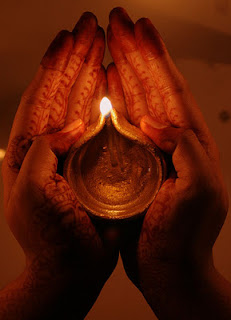Two men were arguing about a flag flapping in the wind.
“It’s the wind that is really moving,” stated the first one.
“No, it is the flag that is moving,” contended the second.
A Zen master, who happened to be walking by, overheard the debate and interrupted them.
2. Present Moment
A Japanese warrior was captured by his enemies and thrown into prison. That night he was unable to sleep because he feared that the next day he would be interrogated, tortured, and executed. Then the words of his Zen master came to him, “Tomorrow is not real. It is an illusion. The only reality is now.” Heeding these words, the warrior became peaceful and fell asleep.
3.
Mastering technique.
After having won many archery contests, the town champion went to the Zen master.
I am the best of all – he said. – I didn’t study religion, never sought help from the monks, and succeeded in becoming the finest archer in the whole region. I heard that, for a time, you were the best archer in the region, and ask you: was it necessary to become a monk in order to learn to shoot?
No – replied the Zen master.
But the champion was not satisfied: he took an arrow, placed it in the bow, fired it and hit a cherry which was very far away. Smiling, as if to say: "you might have saved your time, devoting yourself only to technique." And he said:
I doubt whether you could do that.
Without looking in the least bit worried, the master went inside, fetched his bow, and began to walk towards a nearby mountain.
On the way, there was an abyss which could only be crossed by an old bridge made of rotting rope, and which was almost collapsing.
The Zen master went to the middle of the bridge, took his bow and placed an arrow in it, then aimed at a tree on the far side of the precipice, and hit his target.
Now it is your turn – he kindly told the young man, as he returned to firm ground.
Terrified as he gazed down at the abyss below his feet, the young man went to the spot and fired, but his arrow veered wide of the mark.
4. Egotism
The Prime Minister of the Tang Dynasty was a national hero for his success as both a statesman and military leader. But despite his fame, power, and wealth, he considered himself a humble and devout Buddhist. Often he visited his favorite Zen master to study under him, and they seemed to get along very well. The fact that he was prime minister apparently had no effect on their relationship, which seemed to be simply one of a revered master and respectful student.
One day, during his usual visit, the Prime Minister asked the master, “Your Reverence, what is egotism according to Buddhism?” The master’s face turned red, and in a very condescending and insulting tone of voice, he shot back, “What kind of stupid question is that!?”
This unexpected response so shocked the Prime Minister that he became sullen and angry. The Zen master then smiled and said, “This, Your Excellency, is egotism.”
5.
Books
Once there was a well known philosopher and scholar who devoted himself to the study of Zen for many years. On the day that he finally attained enlightenment, he took all of his books out into the yard, and burned them all.
6. Gift of Insults
Near Tokyo lived a great Samurai, now old, who decided to teach Zen Buddhism to young people.
One afternoon, a warrior – known for his complete lack of scruples – arrived there. The young and impatient warrior had never lost a fight. Hearing of the Samurai’s reputation, he had come to defeat him, and increase his fame.
All the students were against the idea, but the old man accepted the challenge.
All gathered on the town square, and the young man started insulting the old master. He threw a few rocks in his direction, spat in his face, shouted every insult under the sun – he even insulted his ancestors.
For hours, he did everything to provoke him, but the old man remained impassive. At the end of the afternoon, by now feeling exhausted and humiliated, the impetuous warrior left.
Disappointed by the fact that the master had received so many insults and provocations, the students asked:
How could you bear such indignity? Why didn’t you use your sword, even knowing you might lose the fight, instead of displaying your cowardice in front of us all?
If someone comes to you with a gift, and you do not accept it, who does the gift belong to? – asked the Samurai.
He who tried to deliver it – replied one of his disciples.
The same goes for envy, anger and insults – said the master.
7.
I do not know.
The emperor, who was a devout Buddhist, invited a great Zen master to the Palace in order to ask him questions about Buddhism.
“What is the highest truth of the holy Buddhist doctrine?” the emperor inquired.
“Vast emptiness… and not a trace of holiness,” the master replied.
“If there is no holiness,” the emperor said, “then who or what are you?”
“I do not know,” the master replied.
8. Desperate
The son of a master thief asked his father to teach him the secrets of the trade. The old thief agreed and that night took his son to burglarize a large house. While the family was asleep, he silently led his young apprentice into a room that contained a clothes closet. The father told his son to go into the closet to pick out some clothes. When he did, his father quickly shut the door and locked him in. Then he went back outside, knocked loudly on the front door, thereby waking the family, and quickly slipped away before anyone saw him. Hours later, his son returned home, bedraggled and exhausted. “Father,” he cried angrily, “Why did you lock me in that closet? If I hadn’t been made desperate by my fear of getting caught, I never would have escaped. It took all my ingenuity to get out!” The old thief smiled. “Son, you have had your first lesson in the art of burglary.”
9.
Holy man
Word spread across the countryside about the wise Holy Man who lived in a small house atop the mountain. A man from the village decided to make the long and difficult journey to visit him.
When he arrived at the house, he saw an old servant inside who greeting him at the door.
“I would like to see the wise Holy Man,” he said to the servant.
The servant smiled and led him inside. As they walked through the house, the man from the village looked eagerly around the house, anticipating his encounter with the Holy Man.
Before he knew it, he had been led to the back door and escorted outside. He stopped and turned to the servant,
“But I want to see the Holy Man!”
“You already have,” said the old man. “Everyone you may meet in life, even if they appear plain and insignificant… see each of them as a wise Holy Man. If you do this, then whatever problem you brought here today will be solved.”






